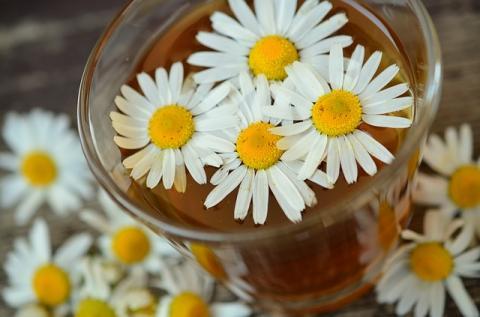
If you don’t know what herbal tonics are, winter is a really great time to learn about them. They are easy to make and simple to store, but the benefits are incredible.
What Are Tonics?
Herbal tonics consist of an infusion of herbs mixed with water, consumable alcohol, vinegar, or oil. Tonics are used to restore and refresh our bodies, as well aspromote our general health and well-being. There are various ‘tonic herbs’ that will increase your overall vitality, improve longevity, invigorate the internal systems, and even strengthen the spirit.
A tonic is different than a tea or a tincture. A tea may be made using the same herbs, but the steeping time is much shorter. A tincture is made with alcohol and herbs and has to sit anywhere from 3 – 6 weeks. When a tonic is made, the herbs must be steeped for at least ten hours before it is ready to be strained and drank. Tonics are used for things like the common cold, revitalization, energy boosting, blood cleansing, and many other health issues. Some of the well-known plants and herbs used in tonics are:
- Ren Shen Ginseng
- American Ginseng
- Siberian Ginseng
- Astragalus
- Fleeceflower Root
- Schizandra
That’s just to name a few from the very long list.
So What Distinguishes a Tonic Herb?
A tonic herb is labeled as such as long as it meets one of these six qualities or characteristics.
- Contains anti-aging properties.
- Produces no negative side-effects whatsoever.
- Provides a wide range of health-promoting results.
- Has a pleasant taste, is easy to consume and digest.
- Provides balance or improves emotional and spiritual state of well-being.
- Must contain at least 1 out of 3 qualities of Jing, Qi (Chee), or Shen.
Tonics can be traced as far back as ancient Chinese and Taoist medicine. In Taoist and Chinese cultures, Jing, Qi, and Shen are known as “ The Three Treasures.” The theory is that The Three Treasures constitute our lives and are a major part of our balance. Here in America, we hear more about Qi than the other two treasures. Jing is our very essence, Qi our energy force, and Shen our mind and spirit. The general belief is that when one is in total balance and harmony we can achieve an overall well-being in every aspect of our health.
How To Make A Tonic
Making a tonic is very simple and it doesn’t take long to prepare, but it does take several hours of steeping before it is ready. All you need is a pot to boil water, a sterile quart-sized mason jar with a lid, your chosen herbs, and honey.
Directions:
Bring a little over 3 cups of water to a boil.
Measure out one cup of dried herbs and place them in your mason jar. The amount of herbs you use should be one cup total, so if you’re using multiple herbs, adjust the measurement accordingly. Always make sure to do your research about the herbs you are using, as some herbs are more potent than others and getting a balanced flavor (and appropriate dosage) may take much ginger, for example, than it would chamomile.
Fill the mason jar with boiling water and tightly close the lid.
Steep for at least 10 hours before straining off the tonic and discarding the plant matter in the compost.
Some people like to add the honey as the herbs steep. I, however, believe it is best to wait until you pour an individual cup. I choose to add my honey after the fact for two reasons: first, some of the honey may absorb into the herbs and be discarded when straining. Second, the longer the tonic steeps the stronger the taste becomes (which is the point), so waiting until the end seems more suitable. You can store your tonic in the refrigerator but it should be drunk within the next couple of days before it goes bad. For the best results, drink two to four cups of your tonic daily until it is all gone.
One of my favorite tonics to make during the winter months is a simple lemon ginger tonic. It is perfect to use if any signs of cold and flu crop up. Keep in mind that tonics may taste good and be flavorful, but they are medicine – so consume with care. We wouldn’t be taking over the counter medications when they are not necessary, so we must keep this in mind with the medicine provided by Mother Earth.
* FUN FACTS* Ginger (Zingiber officinale) is a very rare plant to find in the wild or while out foraging BUT Wild Ginger (Asarum caudatum) can be found in various places in North America and many other countries.








